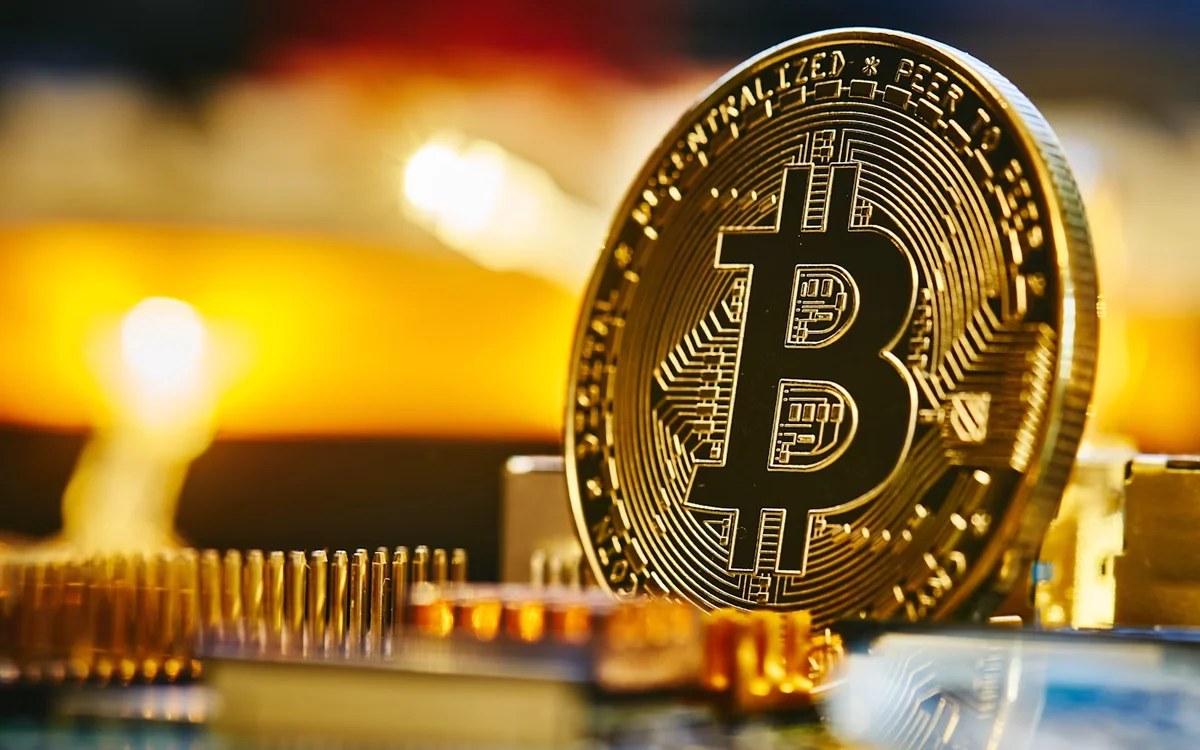Bitcoin Could Hit $2.9 Million by 2050 – VanEck
01.08.2024 20:00 2 min. read Kosta Gushterov
Analysts at VanEck, a leading investment management firm and issuer of crypto ETFs, predict that the price of Bitcoin (BTC) could rise to $2.9 million by 2050.
This prediction, made by Matthew Siegel, VanEck’s head of digital asset research, and Patrick Bush, senior investment analyst, hinges on Bitcoin becoming a central component of the international monetary system.
Siegel and Bush foresee Bitcoin becoming widely used in international trade, becoming a significant medium of exchange and a valuable store of wealth.
This anticipated change would create a feedback loop similar to Gresham’s law, where “bad money drives out good money.” As BTC gains functionality and value, central banks and long-term investors will seek to own more of it, reducing the supply in circulation.
Analysts believe it is possible that by 2050, Bitcoin will be responsible for 10% of global international trade payments and 5% of domestic trade. In this scenario, central banks would hold approximately 2.5% of their assets in Bitcoin.
Applying the velocity of money equation – which measures how often money is used to purchase goods and services – they suggest that these conditions could bring the price of Bitcoin to $2.9 million, which equates to a total market capitalization of $61 trillion.
This analysis includes assumptions about global economic growth, investor demand for Bitcoin, and Bitcoin transaction turnover, painting a picture of Bitcoin’s potential future role in the global economy.
-
1
Esports Giant Moves Into Bitcoin Mining
05.07.2025 13:00 2 min. read -
2
Bitcoin Dominance Nears Key Resistance — Is Altseason Coming Next?
13.07.2025 17:00 2 min. read -
3
Elon Musk Unveils His Own ‘America Party,’ Signals Pro-Bitcoin Political Shift
07.07.2025 11:40 2 min. read -
4
Bitcoin Blasts Past $121,000 as Institutions Fuel Rally—Will Altcoins Follow?
14.07.2025 8:15 2 min. read -
5
Bitcoin: What to Expect After Hitting a New All-time High
10.07.2025 14:00 2 min. read
Global Money Flow Rising: Bitcoin Price Mirrors Every Move
Bitcoin is once again mirroring global liquidity trends—and that could have major implications in the days ahead.
What is The Market Mood Right Now? A Look at Crypto Sentiment And Signals
The crypto market is showing signs of cautious optimism. While prices remain elevated, sentiment indicators and trading activity suggest investors are stepping back to reassess risks rather than diving in further.
What Price Bitcoin Could Reach If ETF Demand Grows, According to Citi
Citigroup analysts say the key to Bitcoin’s future isn’t mining cycles or halving math—it’s ETF inflows.
Is Bitcoin’s Summer Slowdown a Buying Opportunity?
Bitcoin may be entering a typical summer correction phase, according to a July 25 report by crypto financial services firm Matrixport.
-
1
Esports Giant Moves Into Bitcoin Mining
05.07.2025 13:00 2 min. read -
2
Bitcoin Dominance Nears Key Resistance — Is Altseason Coming Next?
13.07.2025 17:00 2 min. read -
3
Elon Musk Unveils His Own ‘America Party,’ Signals Pro-Bitcoin Political Shift
07.07.2025 11:40 2 min. read -
4
Bitcoin Blasts Past $121,000 as Institutions Fuel Rally—Will Altcoins Follow?
14.07.2025 8:15 2 min. read -
5
Bitcoin: What to Expect After Hitting a New All-time High
10.07.2025 14:00 2 min. read

